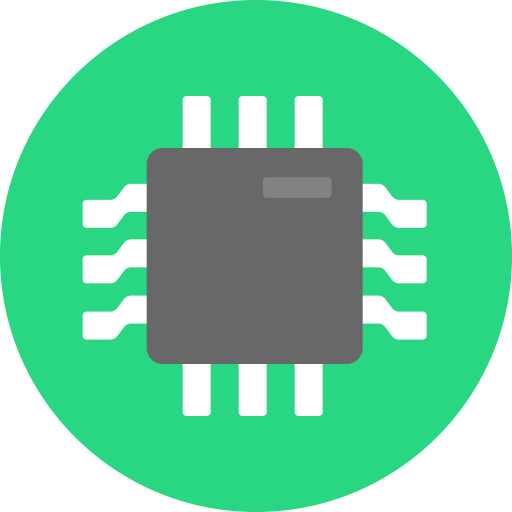Yes, but not normal walnuts, black walnuts. What most people think of as walnuts, at least where I’m from, come from the Persian/English walnut tree, Juglans Regia.
- 0 Posts
- 50 Comments
Green almonds, right?

 2·29 days ago
2·29 days agoDon’t feel too bad. A lot of more complicated Java programs utilize JNI with platform-specfic code, so even if you knew it was Java, it’s not a given that it works on Linux - especially given the incredibly complicated nature of decompilation, and that Ghidra has a DSL to define processors/“languages”.

 6·29 days ago
6·29 days agoThere’s also the NSA’s Ghidra which is a competitor for the best open source application IMO. Previously the only tool for heavy-duty reverse engineering was IDA Pro, which is very expensive (and not open source, of course). The NSA has selfish incentives to have tools like this be open source - free training especially - but it’s still a very good thing.

 298·1 month ago
298·1 month agoIf we stop doing business with SpaceX, we immediately demolish most of our capability to reach space, including the ISS until Starliner quits failing. Perhaps instead of trying to treat this as a matter of the free market we should recognize it as what it is - a matter of supreme economic and military importance - and force the Nazi fucker out.

 2·1 month ago
2·1 month agoI’d be interested in setting up the highest quality models to run locally, and I don’t have the budget for a GPU with anywhere near enough VRAM, but my main server PC has a 7900x and I could afford to upgrade its RAM - is it possible, and if so how difficult, to get this stuff running on CPU? Inference speed isn’t a sticking point as long as it’s not unusably slow, but I do have access to an OpenAI subscription so there just wouldn’t be much point with lower quality models except as a toy.

 5·2 months ago
5·2 months agoBevy, cause I’m a sucker for Rust

 13·2 months ago
13·2 months agoThey have concepts of an ICBM.

 121·2 months ago
121·2 months agoKessler syndrome isn’t really that much of a risk specifically with Starlink (for now at least), as SpaceX seems to be doing things right despite Musk. They’re in such low orbits that even with a catastrophic loss of control, they’ll deorbit very quickly. The real risk comes as more companies and countries try to get a piece of the megaconstellation pie. Starlink in its own seems to be fairly safe and sustainable on its own, but that may quickly change when communication for collision avoidance maneuvers needs to be international.
Despite Musk’s well-earned reputation for being a shithead, SpaceX has this far been doing the right thing far more often than most other space companies, and while it’s certainly possible that will change, the Starlink constellation will entirely disappear very quickly without constant replenishment, so it’s not as if we’d have no chance to act if they begin to show signs of concerning behavior. What’s far more worrying to me in terms of Kessler syndrome is the recent escalation around space warfare, as tensions between Russia, China, and the US continue to boil and nobody seems willing to really commit to making space a neutral zone. Even with space historically being an area of strong international cooperation despite politics (just look at the ISS), that unfortunately seems to be rapidly changing.

 8·3 months ago
8·3 months agoWell they said .NET Framework, and I also wouldn’t be surprised if they more or less wrapped that up - .NET Framework specifically means the old implementation of the CLR, and it’s been pretty much superseded by an implementation just called .NET, formerly known as .NET Core (definitely not confusing at all, thanks Microsoft). .NET Framework was only written for Windows, hence the need for Mono/Xamarin on other platforms. In contrast, .NET is cross-platform by default.

 4·4 months ago
4·4 months agoI’ve found it depends a lot on the game. In CP2077, DLSS+frame gen looks great to me with full raytracing enabled. But in The Witcher 3, I found frame gen to cause a lot of artifacts, and in PvP games I wouldn’t use regular DLSS/FSR. In general I’ve found the quality preset in DLSS to be mostly indistinguishable from native on 3440x1440, and I’m excited to try FSR 3 when I get the chance.
Ever heard of Mr. Hands?

 342·6 months ago
342·6 months agoThis is a use-after-free, which should be impossible in safe Rust due to the borrow checker. The only way for this to happen would be incorrect unsafe code (still possible, but dramatically reduced code surface to worry about) or a compiler bug. To allocate heap space in safe Rust, you have to use types provided by the language like
Box,Rc,Vec, etc. To free that space (in Rust terminology, dropping it by usingdrop()or letting it go out of scope) you must be the owner of it and there may be current borrows (i.e. no references may exist). Once the variable isdroped, the variable is dead so accessing it is a compiler error, and the compiler/std handles freeing the memory.There’s some extra semantics to some of that but that’s pretty much it. These kind of memory bugs are basically Rust’s raison d’etre - it’s been carefully designed to make most memory bugs impossible without using
unsafe. If you’d like more information I’d be happy to provide!
That’s the point. Malicious compliance.

 2·6 months ago
2·6 months agoIIRC it’s an APU thing, and last I heard it was just a rumor (could be out of date). Either way, non-LTSC is EOL in a year and a half. If you’re putting in a Zen 5 CPU, the best choice is realistically either Linux or Windows 11 Pro, since Pro can turn off all the bullshit through group policy. My Windows machine I have to have is on 11 Pro and it’s basically Windows 10 with a slightly different taskbar. No Copilot bullshit, no ads, no Bing in Windows Search. If you’re ok your taskbar on the bottom of the screen, IMO it’s the best choice as long as you have to use Windows.
You’re looking for Fred Rogers, more commonly Mr. Rogers. He was the host of the popular children’s show Mister Rogers’ Neighborhood, and is revered for having been incredibly compassionate both in public and private.

 3·8 months ago
3·8 months agoI was very intrigued by a follow-up to the recent numberphile video about divergent series. It was a return to the idea that the sum of the integers greater than zero can be assigned the value -1/12. There were some places this could be used, but as far as I know it was viewed as shaky math by a lot of experts.
As far as I recall the story goes something like this: now, using a new technique Terrence Tao found, a team was seemingly able to “fix” previous infinities in quantum field theory - there’s a certain way to make at least some divergent series work out to being a real number, and the presenter proposed that this can be explained as the universe “protecting us” from the infinities inherent in the math.
It made me think about other places infinities show up in modern physics (namely, singularities in general relativity) and whether a technique something like this could “solve” them without a whole new framework like string theory is.
Even as an (older) zoomer in the US, this was never a thing for me. No one cared what phone you used. If you had an Android you wouldn’t be in iMessage group chats but no one judged you for it.




It was honestly just dumb luck. I had heard of these previously from a friend who had some in the Philippines. I would say, really, I do know nothing about nuts, relatively speaking :)